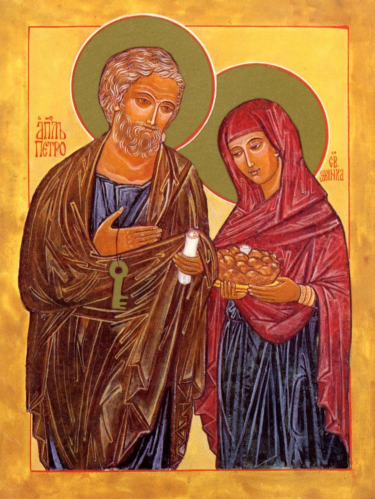 Do married Roman Catholic priests really exist?
Do married Roman Catholic priests really exist?
Today, there are more than 35,000 married priests in US and over 125,000 worldwide.
At the very beginning, Jesus chose single and married men and women (Roman: 15:3,7,15) to “follow him”. These individuals became the first ministers (priests) of the gospel and formed house churches (parishes) to celebrate the Eucharist. Most of the first apostles, including Peter (the first Pope), were married (Luke 4: 38-40). In fact, the first 39 Popes were married!
Why was celibacy imposed on priests?
Did you know that celibacy (abstaining from all sexual relations) only became church law in 1139 AD? At that time, Pope Innocent II decreed mandatory celibacy for all priests in response to concerns about ownership of Church property and a negative perception of sexuality. At that time, priests were instructed to sell their wives and children into slavery. (https://theconversation.com/roman-catholic-priests-have-been-celibate-for-a-thousand-years-but-this-could-change-126404)
Why would a priest leave to marry?
Priests believe their call comes from God. They also believe the call to marry is also from God. Their experience has confirmed that marriage enriches priesthood and priesthood enriches marriage. Leaving public ministry is the only option the church currently allows if they wish to follow their conscience and heart and choose to marry.
Do priests who marry violate the promise they made to God?
A priest who falls in love chooses not to violate his conscience. He is ordained as a priest to service to the People of God. That promise is eternal (Once a priest, always a priest Canon 290). Celibacy is a charism, gift and the current church policy. It was mandated by a pope and can be changed by a pope. There is no reason why a priest should be forced to assume a life of celibacy as a prerequisite to priestly service.
Would a wife and family prevent a priest from being available to his parishioners?
On the contrary. Having a close, loving bond with another mirrors God’s love for us. A family provides a priest with wonderful opportunities for empathy, appreciation, understanding and unconditional love. Firefighters, police officers, doctors and nurses perform their duties without neglecting or alienating family.
Does a wife and family challenge the authority of the bishop?
A priest is commissioned by the bishop to be a pastor. The bishop is the priest’s supervisor. They work collaboratively to find the best ways to minister to the needs of the People of God. Having a wife and children would go a long way in altering the perception of the priest as an indentured servant in a clericalist feudal system. It would be similar to a military structure in which families are a real part of the system.
How can a parish afford a married priesthood?
If all other Churches can find a way to finance a married minister, surely Catholics can as well. Currently, catholic parishes pay the celibate priest’s salary, health insurance, housing costs, and clothing and car allowances. Many married priests have other careers (lawyers, physicians, accountants, CEO’s psychotherapists, social workers, college professors, health service directors, etc.).
If priests are allowed to marry, some may divorce. Would this create scandal?
The real scandal is that Catholics whose marriages fail are shunned from the sacraments. While it is ideal for relationships to last forever, the reality is that it is not the case in at least 50% of all marriages. Some churches offer a formal service to recognize the end of a marriage. The woman caught in adultery (John 7:53-8:11) was saved by Jesus when he challenged Let anyone among you who is without sin be the first to throw a stone at her.
If priests are allowed to marry, why can’t women be ordained?
CORPUS believes that women can and should be ordained. In fact, CORPUS stands firm that anyone called to priestly ministry should be recognized regardless of gender, marital status or sexual orientation. We stand in close collaboration with several groups which support the call to ordination (Roman Catholic Womenpriests (www.RCWP.org); Ecumenical Catholic Communion (www.ecumenical-catholic-communion.org) ; Federation of Christian Ministries (www.federationofchristianministries.org); and FutureChurch (http://www.futurechurch.org ).
If the church opened up its ranks to married priests, would CORPUS members go back?
The Catholic Church has already welcomed Protestant married priests and their families (http://www.pastoralprovision.org/). Most have left their faith tradition to become Roman Catholic priests because of their opposition to the acceptance of women in the priesthood.
Most CORPUS members would not return until there is a full recognition and respect for the role of conscience in making decisions in their life; the full inclusion of women in all roles of church life and leadership; an unconditional acceptance of homosexual individuals as clear reflections of the face of God (including the right to marriage, adoption, employment in catholic institutions); and a celebration of sex and sexuality as sacred and grace-filled.
Would a married priesthood save the church?
CORPUS members are committed to the reform and renewal of the church according to the spirit and documents of the Vatican II Council. While a married priesthood is an element, it needs to be woven into a fabric of so many other challenges that the church currently faces.